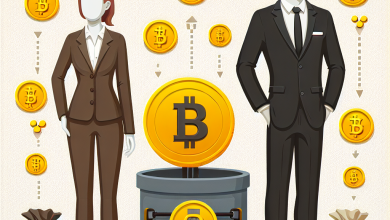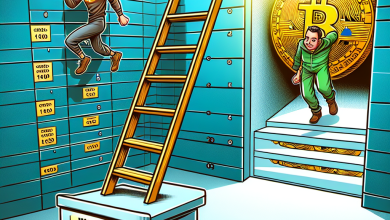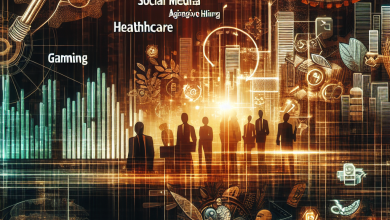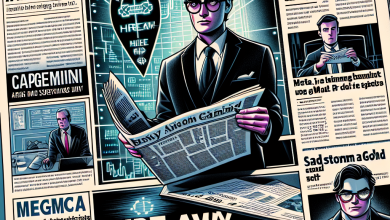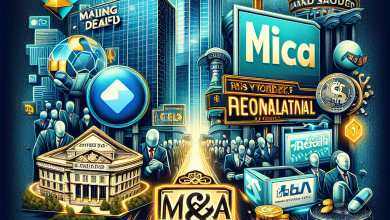Crypto: How the German financial regulator is slowing down the hype
The new hope of the crypto world is hidden behind a cryptic abbreviation with four letters: DeFi. This stands for “Decentralized Finance”, financial services without intermediaries such as banks – decentralized. So far, crypto enthusiasts in particular have been cavorting in the DeFi area, but DeFi applications are still too complicated for normal investors. But a Berlin fintech now wants to change that.
The crypto company Unstoppable Finance has launched a new smartphone app: Investors in Germany should be able to use it to store crypto assets themselves, trade them and earn interest by investing in selected DeFi protocols. At least in theory.
The problem: The wallet – i.e. the digital purse – with the name Ultimate is only available in a light version in Germany. Users can check token prices in real time and manage their own coins. However, you cannot trade through the app, although that is supposed to be one of its core functions. So the app starts according to the principle: Just look, don’t touch.
The background are problems with the financial regulator BaFin. The launch of the Ultimate app was actually planned for November last year. The app has since been available in most Western countries. But nothing came of the Germany start for the time being.
According to financial circles, BaFin announced Unstoppable Finance shortly before the launch that the company would fall under the supervision of BaFin and would first need its approval. To date, more than six months later, nothing has happened. The fintech is still in contact with the supervisory authority.
Founder Peter Grosskopf does not resist regulation. He was always involved with BaFin: He helped build Solarisbank and headed the Stuttgart Digital Exchange. Grosskopf accuses BaFin of acting too slowly – and of forcing its fintech into a regulation that does not reflect the characteristics of the DeFi sector.
German crypto companies “strongly disadvantaged”
BaFin is examining whether the Unstoppable Finance offer is relevant for regulatory purposes. “Business models that are not only supposed to be decentralized but are actually decentralized are not per se free of permission,” said a spokeswoman on request. Grosskopf sees it differently: His app is comparable to an Internet browser that users can use to call up different websites independently. It is therefore only the tool, not an intermediary.
Grosskopf is disappointed with the delay. If BaFin sticks to its stance, Unstoppable Finance would be “seriously disadvantaged compared to competing providers who continue to offer their services in Germany without a license,” he complains. Meanwhile, BaFin does not recognize any preference for foreign providers. The motto “same risk, same rules” applies. “If you act without a necessary license in Germany, then you are conducting unauthorized business that we are pursuing, prohibiting and processing,” said a BaFin spokeswoman
In fact, there are already similar products from providers such as the crypto wallet Metamask that can be used in Germany without any BaFin approval. The crypto exchange Binance, for example, now has several million German customers, although it does not yet have a BaFin license. As long as the providers do not actively advertise for German customers, the supervisors do not intervene. German companies, on the other hand, are generally subject to BaFin supervision. A limitation that other fintech entrepreneurs also criticize.
According to Unstoppable Finance, 500,000 prospects are waiting to be approved to use the Ultimate app. So far, only around 10,000 users are active on the platform. The reason: the app has only been available for the Android operating system for a few weeks, and the majority of those interested come from Germany.
Fintech wants to set up a full bank
Founder Grosskopf is sticking to his plan to soon offer a full version of the app in Germany. Schedule: uncertain. In the event of an emergency, Grosskopf plans to flee to the front: “If it is necessary to go abroad, this is a sad consequence.”
If Unstoppable Finance operates from another country, it can also launch the full version of its app in Germany. There is a certain irony in the fact that the emergency solution could be a step that the fintech criticizes others. If in doubt, going abroad would make economic sense. After all, investors have invested a two-digit million amount in the start-up and want to see income.
Crypto ABC: The most important terms explained in an understandable way
The focus on the crypto market is clearly on Bitcoin. Altcoins are cryptocurrencies that were invented after the oldest digital currency and represent an alternative to Bitcoin. Examples are Ethereum, Cardano or Solana.
Bitcoin is not only the largest in terms of volume, but also the oldest cryptocurrency in the world. As early as October 2008, Satoshi Nakamoto, the pseudonym of the Bitcoin inventor, outlined what such a virtual currency could look like in a white paper entitled “A Peer-to-Peer Electronic Cash System”. Shortly thereafter, in January 2009, the first bitcoins were mined. Because Nakamoto acted under a pseudonym, it is still unclear who exactly created Bitcoin.
Cryptocurrency transactions are documented on the blockchain. Blockchain is a public, decentralized database. The information is not stored on a single server, but on many thousands of computers. “Chain” comes from English and means “chain”.
Each transaction is stored in a block and appended to a chain of pre-existing records. That is why the blockchain is also called a digital cash book. The stored data can no longer be changed afterwards or only with the consent of the network. This is to create a forgery-proof protocol.
Ether is the second largest cryptocurrency behind Bitcoin and is based on the Ethereum blockchain. Compared to the Bitcoin blockchain, this is considered to be more modern and powerful and will soon be switched to the more energy-saving proof-of-stake process. Smart contracts can also be traded via Ethereum. The cryptocurrency is also popular because NFTs (non-fungible tokens) are often based on Ethereum and are therefore paid for with Ether.
Mining is the creation (digging) of new coins. In this process, in the case of Bitcoin, miners make the computing power of their computers available to solve complex mathematical tasks. This is how transactions are verified and stored on the blockchain. The miners are rewarded with newly generated Bitcoin for providing the computing power.
With some other cryptocurrencies, however, the mining is not based on computing power, but on the shares of the network participants in the respective cryptocurrency (see Proof of Stake). In this case, mining is therefore often referred to as staking. Participants also receive a bonus for this, i.e. a kind of interest on their share.
Minten refers to the creation of an NFT (non-fungible token). In this case, “imprinting” the image means uploading it to the blockchain.
The abbreviation NFT stands for non-fungible tokens, i.e. non-exchangeable tokens. NFTs are virtual goods traded on the blockchain. These are often digital images or trading cards. Every NFT is unique. Anyone who buys one is registered as the owner in the blockchain and can therefore show a certificate of authenticity for a virtual image or a digital work of art, for example.
With the proof-of-work process, new coins of some cryptocurrencies such as Bitcoin are created. The miners make the computing power of the system available to solve complex tasks. Whoever manages to solve the task first can attach the block to the blockchain and receive a reward in the form of digital coins. The proof-of-work approach is considered to be particularly energy-intensive.
Some blockchains are based on the Proof of Stake process. Unlike Proof of Work, mining does not require extensive hardware and large amounts of computing power. Proof of Stake is therefore considered to be much more energy-efficient.
Instead, those transactions and new coins that hold a particularly high proportion of a cryptocurrency are allowed to release them. They are then called validators. The process is based on a consensus mechanism. The higher the price, the higher the number of coins to participate in the process.
Smart contracts are virtual contracts that are exchanged over the blockchain. These come into force independently under certain previously defined conditions. Banks and other financial institutions in particular see great benefits in smart contracts. For example, they could make intermediaries – i.e. intermediate bodies such as securities brokers – superfluous in stock exchange trading.
The wallet is a kind of digital purse for cryptocurrencies. It allows users to buy and send crypto assets. There are several types of wallets. The hardware wallet is essentially a USB stick on which a user’s crypto assets and access are stored. A paper wallet is printed out on paper.
A QR code is generated for this, which you have to scan in order to make transactions. A software wallet does not require external devices or paper printouts. Here the data is stored in a computer program. Users must not forget their access data: otherwise they would be denied access to their crypto assets.
This crypto ABC comes from the big one Crypto 1×1 from WirtschaftsWoche: You can download the complete dossier here
While Unstoppable Finance continues to seek approval from BaFin, the fintech is planning a further step at the same time: last week it announced that it wanted to set up a full bank. The crypto company wants to open a financial institution in decentralized finance and thus bring together the bank and blockchain. Blockchain, the technology behind cryptocurrencies like Bitcoin, is the digital data protocol on which all transactions are stored. The start of the full bank is planned for the coming year – if talks with BaFin go well.
Also read: How the crypto industry wants to make the next evolutionary leap

